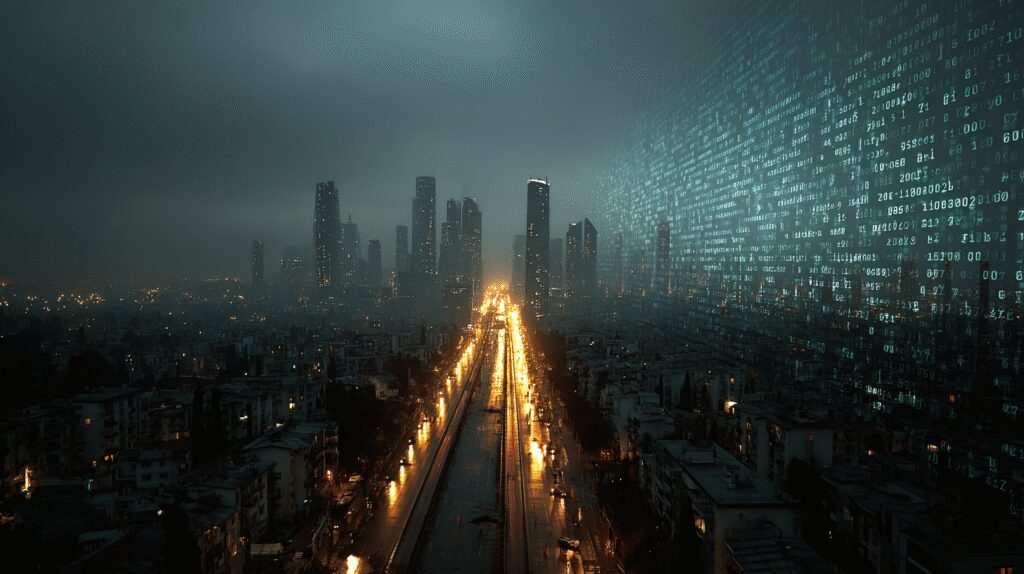The Smart City Lie We Keep Telling Ourselves
What’s the point of a facial recognition bus stop if your bus never shows up?
Southeast Asia is having a love affair with “smart cities.” From Jakarta’s planned smart capital Nusantara, to Singapore’s seamless government apps, to Bangkok’s endless e-government pilot programs – the region is awash in optimism that urban technology will fix chronic problems. Congestion? AI. Corruption? Blockchain. Floods? IoT sensors.
But beneath the glossy mockups and buzzwordy startup pitches lies a brutal truth: most “smart cities” in Southeast Asia are architected by elites, for elites. They are not solving urban challenges—they are digitizing dysfunction.
The problem isn’t that our cities are using tech. It’s that we mistake flashy tech for structural change.
Wi-Fi-Enabled Gridlock Is Still Gridlock
Let’s get real. How many “digital government” initiatives have actually made your life easier? Did that chatbot really resolve your water billing issue? Did the “smart traffic system” shorten your commute home from Quezon City or KL?
The recent rollout of facial recognition gates at KLIA didn’t prevent chaos when baggage systems failed in March. And Singapore’s intelligent traffic systems may be high-tech, but they don’t change that car ownership is still a class privilege predicated on wealth—not mobility equity.
Urban technology, without social intelligence, is just lights and code layered over dysfunction. You can digitize a bad system—but it will still be a bad system, just faster. Instead of fixing housing inequality, we build 5G condos. Instead of investing in public transport, we launch ride-sharing apps to subsidize middle-class convenience.
Tech becomes a smokescreen. A new coat of digital paint slapped on crumbling public trust.
Whose City Is Actually Being “Smartened”?
Here’s the missing piece that smart city evangelists always forget: good cities aren’t made of sensors, they’re made of people. But in many Southeast Asian countries, tech-led urbanism reflects the priorities not of average citizens, but of a hyperconnected bureaucratic elite and the private developers who orbit them.
Jakarta’s “Ibu Kota Nusantara” is a prime example. Slated to be a carbon-neutral “smart forest city,” it’s a glistening promise of escape from the messiness of Jakarta’s social and environmental collapse. But who is this new capital for? Certainly not the urban poor displaced by flooding or informal workers who prop up the megacity’s real labor economy. They don’t feature in the drone footage.
It’s the same in Ho Chi Minh City’s Thu Duc “innovation city” plan, where high-tech clusters and special economic zones are prioritized over basic public housing.
The dominant narrative is that smart cities are the future. But what if—brace yourself—they’re a distraction from the political courage needed to reform land laws, clean up corrupt procurement, or challenge car-centric planning?
The Cost of Skipping the Ugly Work
Here’s what everyone misses: governance is not glamorous. Building inclusive cities means doing the unsexy stuff—fixing drainage, enforcing zoning, budgeting for boring maintenance. Southeast Asian governments keep betting that digital tools can bypass this grueling work. But in practice, they just hide it.
Take Thailand. The Eastern Economic Corridor (EEC) includes plans for “smart logistics hubs” and autonomous ports. But rural communities across Chachoengsao report land seizures, unequal compensation, and opaque development deals. In short: tech is being used to grease the wheels of elite extraction, not to empower democratic participation.
Or look at Manila’s recent push for digital traffic enforcement. Theory: more efficient fines. Reality: police corruption finds new digital avenues. Same game, better user interface.
Daily Nudge: We Don’t Need Smarter Cities — We Need Braver Ones
Tech is not evil. But fetishizing it in place of political reform is cowardice in disguise.
We don’t need “smart cities.” We need brave cities. Cities that tackle entrenched inequality, that invest in people over platforms. That value transparency more than face-recognition turnstiles, and bike lanes more than data dashboards.
The smart city was meant to be a tool—but it’s become a trap. If Southeast Asia isn’t careful, we’ll wake up with all the apps, but none of the democracy.
So before the next mayor promises to put “AI in every corner,” maybe ask: What are they trying to automate away? Accountability, perhaps?
Let’s not digitize our way out of difficult conversations. Let’s have them instead.

